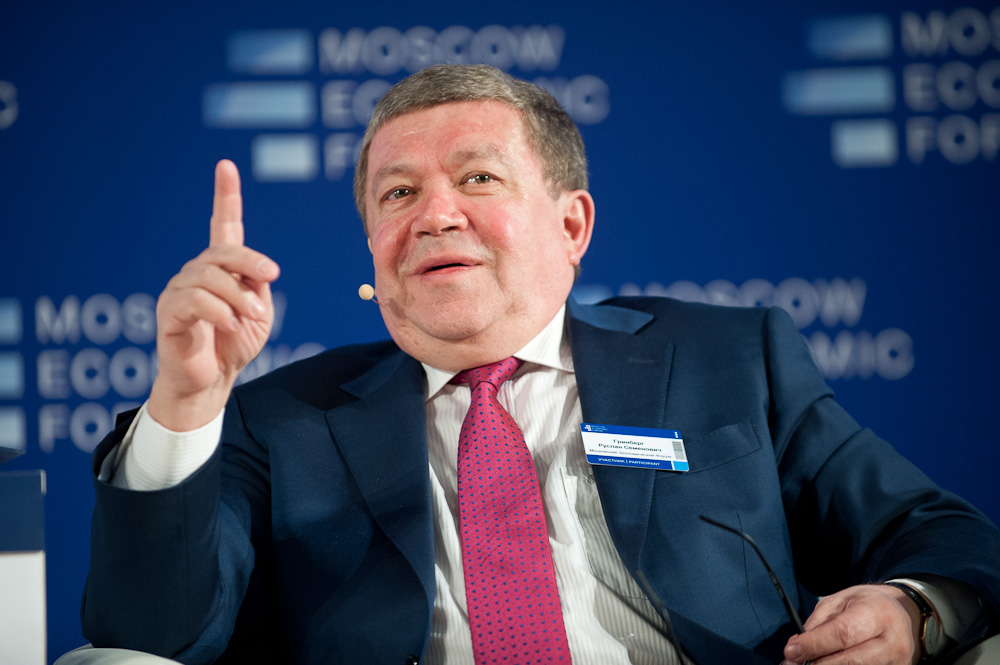What to do with the economy

Published: December 1st, 2017
The Russian Academy of Sciences hosted a scientific conference "Results of the market transformation of the Russian economy in 1991-2016. What's next?"Scientists, experts, representatives of state authorities and business evaluated the results of the country's socioeconomic development for a quarter of a century, tried to understand the pros and cons of the Russian market economy, to outline ways to solve a multitude of accumulated problems.
"We came to the conclusion that the state should be a full and active subject of a market economy, and not just an arbitrator," says one of the organizers of the conference, the scientific director of the Institute of Economics of the Russian Academy of Sciences, corresponding member of the Russian Academy of Sciences, n. Ruslan Grinberg. - It is necessary to increase the efficiency of state investments, radically change the monetary policy, strengthening the ruble. The structure of budget expenditures should be reoriented in the interests of public health, culture, science, education. We should strive to increase the share of small businesses in the economy to 60-70%, as in developed countries.
Finally, it is necessary to reduce the bureaucratic burden on business and transform the political system in favor of developing competition and establishing public control over the executive branch. It is necessary to strive to increase the presence of small businesses in the economy, to begin the infrastructure development of the country.
We do not use the spatial potential at all, which should be based on the development of transport infrastructure, in particular, it is necessary to create high-speed transport routes between Europe and Asia.
And, of course, the transition to the progressive system of personal income taxation, adopted throughout the civilized world, is long overdue. All these measures will give the necessary impetus to our economy ".
Leader of the movement "New Russia" Nikita Isayev:
- Market transformation of the economy in the 2000s did not work out. The first problems became visible before the crisis, in 2013. The fall in oil prices and the collapse of the ruble exchange rate have only intensified the underdevelopment of the domestic economy. Three crisis years, unfortunately, also did not give a push to restart.
The decline in real disposable income, which began in November 2014, also marked a three-year anniversary, and does not slow down its pace to this day. The first half of 2017 still gave hope for economic recovery and improvement of the well-being of the population. But the inability of people to spend significant sums in the purchase of goods also affected the industrial production.
In the first half of the year, they produced increased volumes of output in the hope of correcting the situation, but this did not happen. As a result, the indices of industrial production began to slow down, triggering a chain reaction of declining incomes.
According to HSE polls in October, 23% of Russians rated themselves as poor against 20% in May, and 29% of respondents said that even buying clothes causes serious problems. Vicious circle.
It can only be broken by the development of industry in the regions. And for this it is necessary for the regions to be able to independently earn and dispose of their means. The regions have levers for supporting entrepreneurship, for example, they can reduce their share of the profit tax.
But only now regions and cities receive a penny: more than 60% of collected taxes go to the federal budget. But the regions are mired in debt and spend huge amounts of money on their services. Subsidies and subsidies of all problems do not solve: they arrive with a delay, and the volume is reduced. Only own revenues will help the regions to develop industry and raise incomes of citizens.
Source: Mir novostey
Share:
Latest news
07.05.2018 MEF-2018: debate "Cultural policy: between individual freedom and the interests of society?"
07.05.2018 MEF-2018: Conference No. 8
07.05.2018 MEF-2018: Conference No. 4
07.05.2018 MEF-2018: Conference No.3
07.05.2018 MEF-2018: Conference No. 2
07.05.2018 MEF-2018: Conference No.1
26.04.2018 McConnell Discusses Information Warfare
20.04.2018 MEF-2018: closing plenary session
17.04.2018 Mr. Freysinger: «Skripal’s case» for relationship between Russia und European Union?
